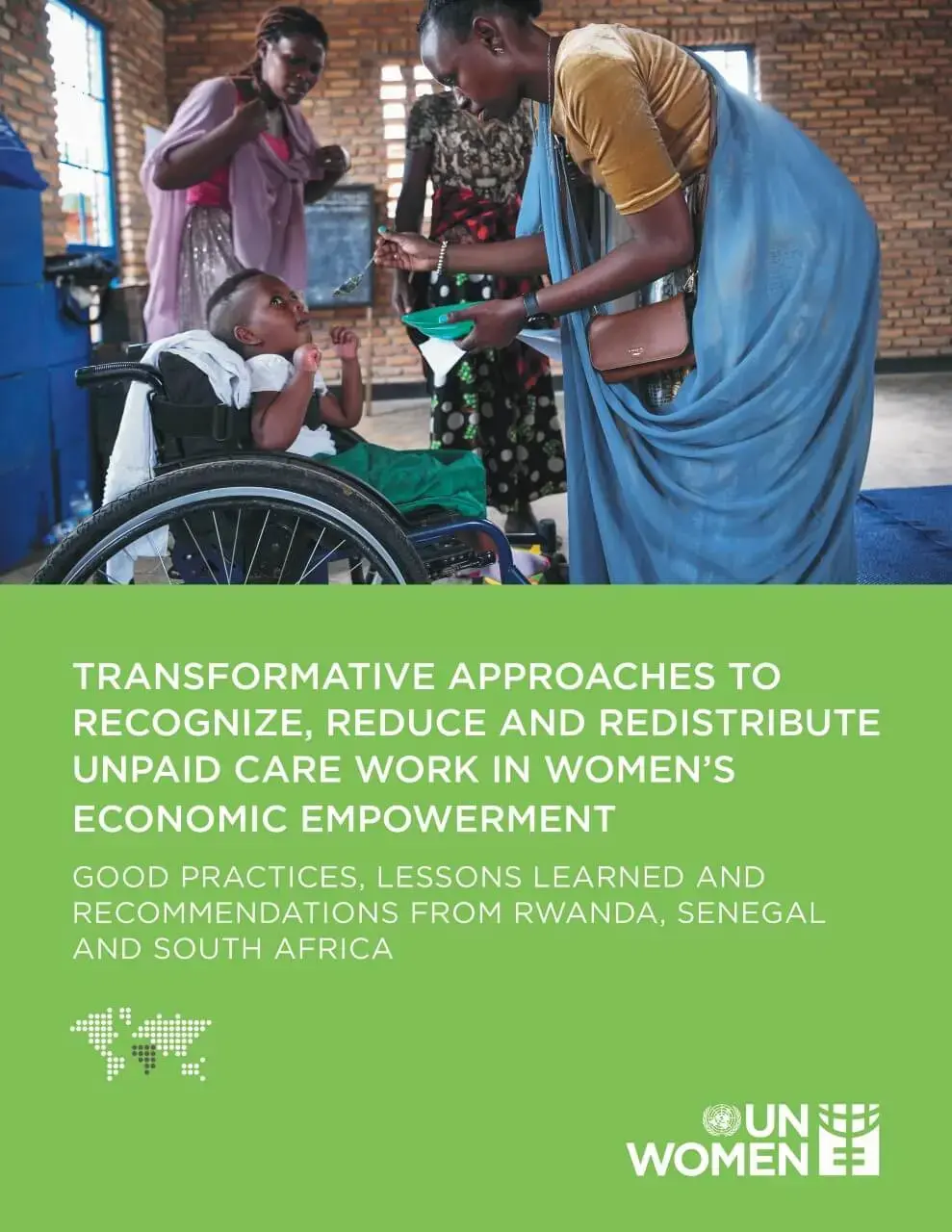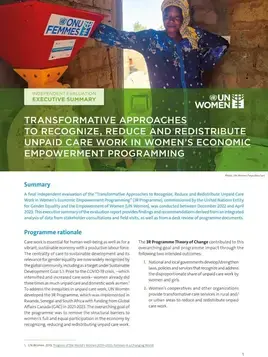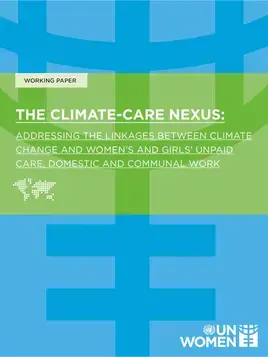
Transformative approaches to recognize, reduce and redistribute unpaid care work in women’s economic empowerment: Good practices, lessons learned and recommendations from Rwanda, Senegal and South Africa
Care work is essential for realizing human rights and sustainable economies. In Africa, women spend, on average, 3.5 times more on unpaid care and domestic work than men, limiting their engagement in education, income generation, and community leadership. To address this, UN Women, with funding by Global Affairs Canada, implemented the “Transformative approaches to recognise, reduce, and redistribute unpaid care work in women’s economic empowerment programming” (3R Programme) in Rwanda, Senegal, and South Africa.
This document compiles the good practices and main lessons learned from the 3R Programme’s pilot phase (March 2021 to March 2023). It analyses how evidence-based policy dialogues, bottom-up approaches, local development plans, addressing climate change impacts, environmental degradation, and biodiversity loss on women’s unpaid care and domestic work, alongside gender-transformative strategies, can help recognize, reduce, and redistribute unpaid care work. It also emphasizes leveraging local platforms.
The paper highlights lessons learned and concludes with recommendations for the subsequent phases of programming, including:
- supporting enabling policies and legal frameworks,
- data and evidence collection for advocacy,
- policy dialogues at both local and national levels,
- the geographical scaling-up of the intervention, and
- shifting from the 3R framework (Recognize, Reduce and Redistribute unpaid care work) to the 5R framework (Recognize, Reduce and Redistribute unpaid care and domestic work and Reward and Represent paid care and domestic work).


